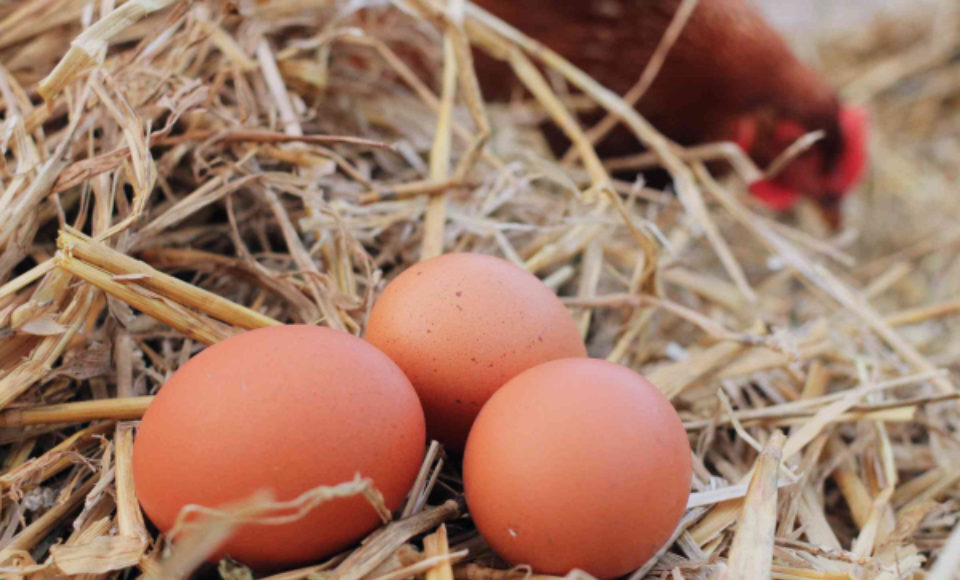Raising chickens for egg production can be a rewarding and sustainable practice. Whether you’re a small-scale farmer or just someone interested in having fresh eggs daily, understanding how to raise chickens for egg production is crucial. In this guide, we’ll delve into the essentials of getting started, and optimizing your flock for quality and quantity of eggs.

Why Raise Chickens for Egg Production?
Chickens provide fresh, organic eggs and offer many other benefits. Keeping chickens for egg production contributes to sustainable living by reducing reliance on store-bought eggs. Furthermore, chickens are delightful pets that add life and character to your barnyard or backyard.
Choosing the Right Chicken Breeds
Not all chicken breeds are created equal, especially when it comes to egg production. Some breeds are known for their superior laying abilities. Here, well explore the best breeds for egg-laying, including the popular Rhode Island Red, Leghorns, and Sussex.
Rhode Island Red
Known for their hardiness and adaptability, Rhode Island Reds are one of the top choices for egg production. They are consistent layers and need minimal care compared to other breeds. They are also friendly, making them great for families.
Leghorns
Leghorns are prolific layers and known for producing large white eggs almost daily. They are active and can adapt to various environments. These chickens require a bit more management due to their energetic nature.
Setting Up the Perfect Chicken Coop
The coop design plays a monumental role in your chickens overall health and egg production. A well-designed coop will provide shelter, safety, and comfort. Access an in-depth guide on crafting the best coop design for your egg layers.
The Importance of Proper Nutrition
A nutritious diet ensures your chickens lay eggs sustainably and healthily. Providing balanced feed that includes the necessary proteins, calcium, and other nutrients is essential. While there are commercial feeds available, you can also enhance their diet with fresh greens and seeds.
Light Management for Optimizing Egg Production
Light exposure significantly affects egg laying. Chickens need a consistent light pattern to maintain steady egg production. Learn more about the effects of daylight on laying in our comprehensive overview.
Creating an Ideal Light Schedule
Implement a consistent light schedule to stimulate egg production, especially during shorter days. Aim for 14-16 hours of light daily to encourage consistency in egg laying.
Egg Collection and Preservation Techniques
Proper egg collection techniques can help you keep your eggs fresh longer. Its essential to understand how to handle eggs once theyre laid. For tips on handling dirty eggs correctly, ensure you maintain cleanliness and egg quality.
Preservation Methods
To extend the shelf life of your eggs, consider various preservation methods such as coating, water glassing, or refrigeration. Explore egg preservation techniques that dont rely on refrigeration. For further guidance, see how to manage excess eggs here.
Maintaining Healthy Chickens
A healthy chicken is a productive chicken. Regular health checks, vaccinations, and veterinaries consultations are essential. Keep a clean environment and observe any behavioral changes.
Understanding the Egg Formation Process
Comprehending egg formation will enhance your ability to manage and maximize egg production. Become familiar with the stages of egg formation for better care and management of your hens.
Dealing with Common Challenges
Raising chickens for egg production comes with its set of challenges. Be prepared to tackle issues such as predators, pests, and disease outbreaks. Implement preventative measures like secure fencing and disease monitoring for best results.
Conclusion
Raising chickens for egg production can be an incredibly fulfilling endeavor. By choosing the right breeds, maintaining optimal living conditions, providing a balanced diet, and implementing effective management strategies, you can enjoy a continual supply of fresh eggs. Maintaining a thriving flock requires dedication, but the rewards are plentiful.

FAQs
Q1: How many eggs can I expect from my hens weekly?
A: Depending on the breed, you can expect anywhere from 4 to 7 eggs weekly per hen, assuming optimal conditions.
Q2: What should I do if my hens stop laying eggs suddenly?
A: Sudden cessation might be due to stress, nutritional deficiencies, or environmental changes. Ensure consistent light exposure and balanced nutrition.
Q3: Are backyard chickens legal in urban areas?
A: Many urban areas allow backyard chickens but have specific regulations. Check local ordinances regarding zoning and coop standards.
This article contains affiliate links. We may earn a commission at no extra cost to you.










